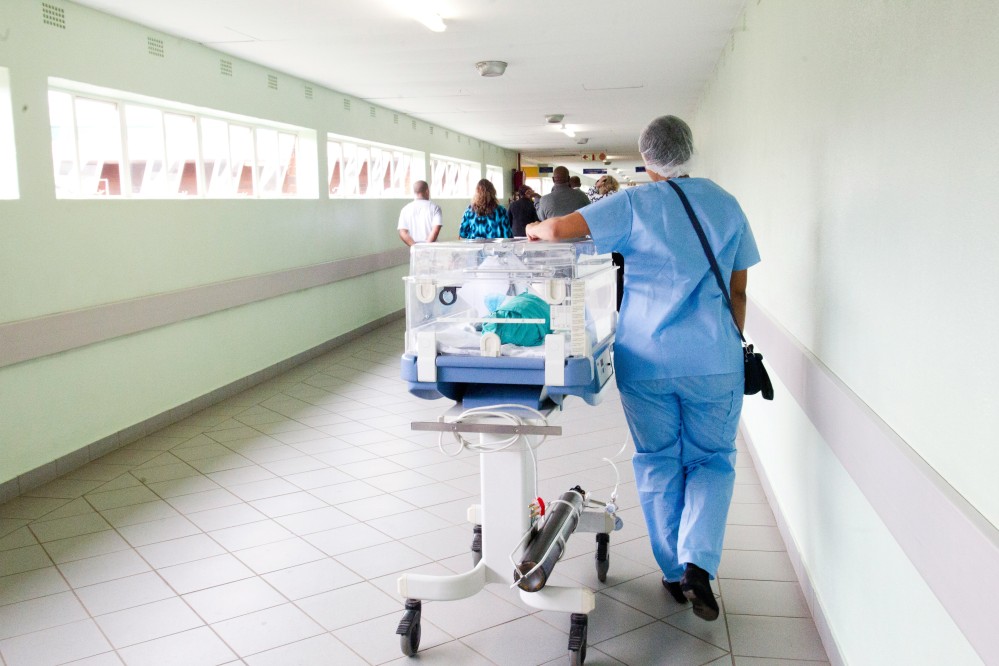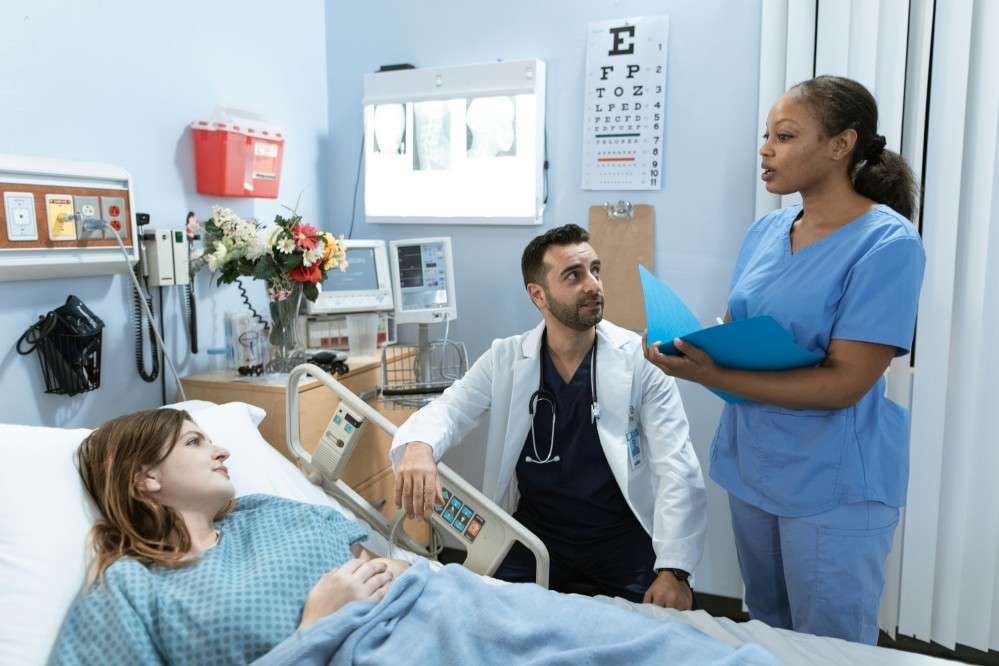Medical assistants play a vital role in healthcare settings, performing various administrative and clinical tasks to support physicians, nurses, and other healthcare professionals. While a medical assistant typically provides direct patient care, there are also opportunities for advancement and specialization.
Roles & Responsibilities of a Medical Assistant
As a medical assistant, you’ll have a diverse range of administrative and clinical responsibilities to ensure the smooth functioning of medical facilities.
Clinical Responsibilities:
- Patient Care – Medical assistants often take patient vital signs, record medical histories, and assist physicians during examinations.
- Basic Medical Procedures – They may perform basic medical procedures such as drawing blood, administering medications (under supervision), and changing dressings.
- Patient Education – They provide information about procedures, medications, and general health maintenance.
Administrative Responsibilities:
- Scheduling – Managing appointments, coordinating patient schedules, and maintaining electronic health records.
- Billing and Coding – Medical assistants often handle billing and coding tasks, ensuring accurate documentation and reimbursement.
- Communication – They serve as a liaison between patients and healthcare providers and with pharmacies, laboratories, and insurance companies.
How to Advance as a Medical Assistant?

Advancing as a medical assistant typically involves further education, certification, and gaining specialized skills. Here are some steps you can take to advance in this field:
1.Consider obtaining certification as a Certified Medical Assistant (CMA) or Registered Medical Assistant (RMA) through accredited programs. Certification demonstrates your competency and commitment to the profession.
2. Seek opportunities to gain experience in specialized areas such as pediatrics, cardiology, or dermatology. Specializing can open up new career paths and increase your earning potential.
3. Pursue further education, such as an associate’s or bachelor’s degree in healthcare management or a related field. Advanced degrees can qualify you for supervisory or administrative roles within healthcare organizations.
4. Attend conferences, join professional associations, and connect with other medical assistants and healthcare professionals to build professional relationships within the healthcare industry.
Medical Assistant Skills
Medical assistants require unique skills to manage As a medical assistant tasks in healthcare settings effectively. These skills include and are not limited to:
1. Organizational skills
2. Communication skills
3. Technical proficiency
4. Attention to detail
5. Interpersonal skills
By continuously improving these skills and staying abreast of industry developments, medical administrative assistants can build successful and fulfilling careers in healthcare administration.
Where Can Medical Assistants Work?

Medical Assistants are crucial in the healthcare industry, working in various medical settings, including primary care offices, orthopedic practices, and podiatry clinics. MAs possess clinical knowledge and administrative skills, enabling them to assist physicians, facilitate patient care, and ensure the smooth functioning of medical facilities in the following settings:
Primary care office
Primary care (family practice and internal medicine) physicians are the front-line providers who often refer patients to other specialists. Medical Assistants in these settings will prepare the patient to be seen by the doctor or nurse by taking the patient’s weight and vital signs, reviewing their medication list, asking any screening questions and determining the reason for the patient’s visit. In some settings, MAs also draw blood, prepare specimens for transport to a reference lab or run simple in-house lab tests. If you thrive on a fast-paced work environment, primary care service would be a great fit!
Retirement communities and skilled nursing facilities
As the population ages, more people will be moving to retirement communities, assisted living facilities or nursing homes. MAs in these settings will operate under a physician’s or nurse’s orders. Their duties will include dispensing medications, monitoring residents’ vital signs, managing chronic health conditions, wound dressing/changing and rendering first aid duties. If you enjoy interacting with elderly people and working independently, consider working in one of these settings.
Outpatient clinics
In an outpatient clinic, Medical Assistants often do more than work with patients. They may also do double-duty as checking patients in for their appointments and verifying insurance eligibility. In an outpatient clinic, medical assistants may assist the doctor with suturing and casting, removing stitches and dressing and cleaning wounds. In smaller clinics, MAs may also take and process x-rays and run routine lab tests. If you like to wear many hats on the job, then consider working in an outpatient clinic.
Orthopedic practices
Orthopedic surgeons treat injuries and disorders of the musculoskeletal system. During these office visits, the MA will note the patient’s vitals, review medications and note the reason for the visit; many times, the appointments are post-op. An additional duty of MAs in orthopedic offices is charting for the doctor, as during the visit, the doctor will be hands-on with the patient; assessing mobility, gait, flexibility, etc. MAs may also be tasked with assisting with splinting and casting and injections. If you are the type who likes to gain a depth of knowledge and experience in one specialty area, then an orthopedic practice would be a good fit.
Podiatry practices
Our feet take a daily beating and over the years, patients can develop serious problems with their feet. Couple this with an aging population and it’s no wonder that the specialty of podiatry is booming. A MA for a podiatrist will perform many of the same duties as a MA in a primary care practice, such as taking the patient’s history and vitals, but they will also help with trimming patients’ toenails, applying topical medications, and molding and fitting orthotics. If the podiatrist performs in-office surgery, the MA may assist. MAs may also take and process x-rays for the providers. Podiatry is a specialty that is constantly growing and changing as new procedures and treatments are introduced, so if you like being involved in ground-breaking developments, choose this specialty.
Learn more about Medical Assistant careers
These are just a few of the medical assistant career opportunities, but they are the five most common settings. If you would like to further explore a career as a MA, visit the AIAM.edu for more information on our Medical Assistant School in Columbus Ohio. Our program offers an overview of holistic and complementary approaches that sets it apart from other medical assisting programs. We are fully accredited and have financial aid packages. If you are ready to take that first step into a challenging career in the medical professional, apply to join the Medical Assisting program!
Frequently Asked Questions (FAQs):
What are the educational requirements for becoming a medical assistant?
While a high school diploma or equivalent is typically the minimum requirement, many employers prefer candidates who have completed a medical assistant training program or have an associate’s degree in medical assisting.
Is certification necessary to work as a medical assistant?
While certification is not always required, it can enhance job prospects and demonstrate competence in the field. The Certified Medical Assistant (CMA) and Registered Medical Assistant (RMA) certifications are among the most recognized.
What career advancement opportunities are available for medical assistants?
Medical assistants can advance in their careers by obtaining specialized certifications, pursuing further education, gaining experience in specialized areas, and taking on supervisory or administrative roles within healthcare organizations.